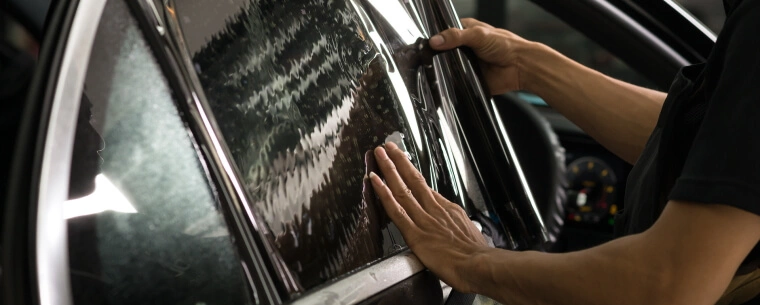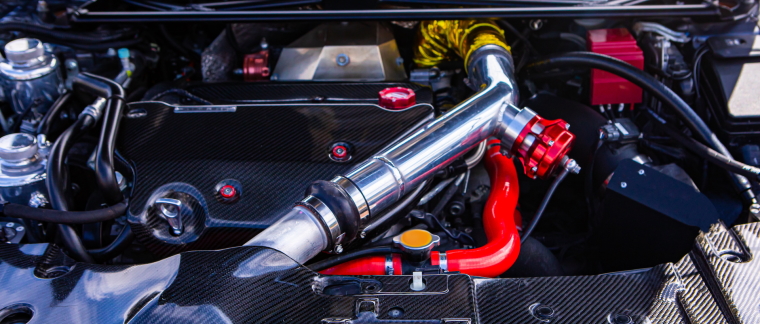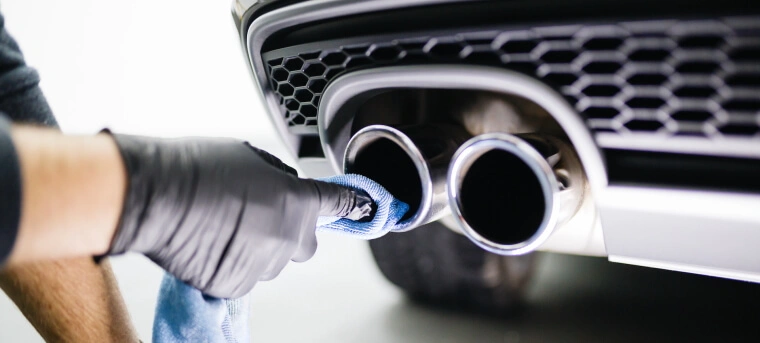Car Modifications You Didn’t Know Were Illegal
Jack Dreyer | Monday 31st January 2022 12:10pm

Britain’s motoring scene has changed dramatically over the years. Recently, the car modification scene has really taken off, and adapted, ‘souped-up’ vehicles are a common sight on the UK’s roads.
While it might not be for everyone, car modification has a strong, devoted following of enthusiasts who enjoy altering the appearance and performance of their vehicles.
But how far is too far when modifying a car? While it’s probably common knowledge by now that excessive modification is frowned upon, some modifications can land drivers in trouble with the law. Do you know which ones?
Read on to find out.
What is car modification?
Before we discuss illegal modifications, though, it is worth making it clear exactly what car modification is.
In the simplest terms, car modification refers to any change made to a vehicle outside of the original manufacturer’s specification.
Usually, modifications fall under the two umbrella terms of ‘Cosmetic’ and ‘Performance-based’ modification — the former changing the appearance and the latter altering the driving style of the vehicle in question.
Car modification most commonly affects the exhaust, windows, lighting, and sound systems, since those are the most noticeable, ‘on show’ parts of a car. Things like bodywork customisations and window tinting are common aesthetic modifications while increasing the horsepower is a more performance-based alteration to make.
Are all car modifications illegal?
Contrary to popular belief, no! Not all car modifications are against the law. While many mods might land you with an MOT failure if deemed obstructive or excessive, it is possible to modify your car in many ways while remaining on the right side of the law.
Which car modifications are against the law?
The fundamental rule for modification is as follows: Modification shouldn’t endanger the driver of a car, their passengers, or any other road user.
Browse the list of illegal modifications below and you may well be surprised by what is and isn’t accepted by UK law.

1. Neon & tinted lights
UK motoring law specifies that neon lights are not allowed on Britain’s roads in most cases since they present a distraction to other road users. However, you are able to add neon light tubing to the underside of your car if it isn’t too bright or distracting.
As for the main headlights, the front should be white and yellow, while the back two are always red. So, if you add any coloured tints to your front lights, you may well get pulled over. This includes halogen bulbs with a colour temperature that exceeds 4,200K since they tend to produce a blue-ish tint (a colour reserved purely for the emergency services).
As for brightness, having excessively bright or very weak and dimmed lights is considered hazardous and will also land you in trouble with the law.
2. Tinted windows
No matter how cool you think it looks, full-on window tint is categorically ruled out by UK law. While some level of tint is permitted on car windows, entirely blacked-out windows are never allowed whether you’re selling or driving a car.
Officially, the windscreen can not be any less than 75% tint-free, while the side windows are 70% in order to see one’s surroundings properly.
There is one exception, however. That is if your vehicle was made before the 1st April 1985, in which case both the front and side windows must be at least 75% tint free.
3. Noisy exhausts
We’ve all heard them — those cars with modified exhausts that charge through the suburbs at 3 am. And, while they sound thrilling, exhausts that exceed the noise limit of 74 decibels are, in fact, against the law.
Since exhausts produce both emissions and noise, they are subjected to IVA (Individual Vehicle Approval) standards before being sold to ensure they comply with regulations. As a result, it is easy to tell which cars have had their exhausts modified and are breaking the law by causing noise pollution and physical, environmental pollution.
4. Spoiled spoilers
This one’s a bit of a stickler, since modifying spoilers themselves is not inherently illegal — but the method of modification may be.
Understandably, drivers may choose to alter their spoiler to improve how fast and aerodynamic their car is. However, if the spoiler is loosely or improperly fastened to the car and/or has sharp edges it is irresponsible and, if caught by the police, you may be asked to remove it immediately.
This also applies if your spoiler is too large and obstructs your view. As a rough guide, your spoiler should be no bigger than three inches wide and positioned about six inches above the roofline.
5. Certain engine modifications
If you make any modifications to your car’s engine, you’re asking for trouble. This part of the car is extremely technical and things can get dangerous if you make too many changes. One popular modification is the use of Nitrous Oxide gas to increase cylinder pressure.
This increased pressure can severely damage the engine and cause it to fail, so it is wise to steer clear of modifications like these, both because they are illegal and threaten your own safety.

Car modification & insurance
One thing to note if you are planning to modify your car is the necessity of informing your insurance company of every change you make.
Since enhancing your car’s performance and aesthetics make it more susceptible to accidents and theft, your insurance company will want to know of any and all modifications you make.
Usually, modifications increase the premium they charge you, no matter how small the change.
Once you’ve decided to get a car modification, you need to inform your car insurer about the changes, no matter how small they are. That being said, some modifications that seem to increase the safety of your car can, in some cases, lower your premium. For example, adding high-performance brakes. If you’re thinking about modifying your car, think carefully. Firstly, check which mods will land you in trouble with the law. Secondly, make sure you inform your insurance company. And, lastly, consider your own safety when making any high-risk modifications.
If you have any questions about the condition of your vehicle, its tyres, brakes, or accessories, give your local Kwik Fit centre a call and we can point you in the right direction.
Any facts, figures and prices shown in our blog articles are correct at time of publication.
Featured Articles
Is it Illegal to Drive With One Headlight?
Saturday 19th July 2025
Wondering if it’s illegal to drive with one headlight? Learn about the safety risks and penalties of illegal blown bulbs and why you should fix them promptly.
Air Con in EVs & Hybrids: Experts Answer Your Questions
Monday 30th June 2025
Does air con drain EV batteries? Can you use the air con while charging an electric car? Find out the answers to these questions & more from Kwik Fit’s experts.
Why Is Your Car Making a Noise? Fixes & Tips
Friday 13th June 2025
When your car starts making unexpected noises, it can certainly be quite disconcerting; it may be nothing to worry about, but here’s what you need to know.









